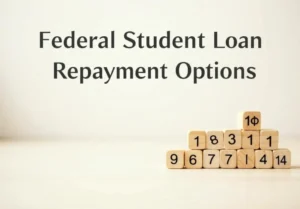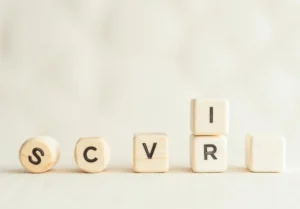
Are you considering raiding your 401(k) to settle your debts? It’s a tempting thought, especially when financial pressure mounts, but is it the right move? The decisions surrounding debt repayment and retirement savings can make a significant impact on your financial future.
No, using your 401(k) to pay off debt is generally not advisable. Though it might provide quick relief, the long-term penalties and loss of retirement savings can outweigh any immediate benefits. But this topic has many layers, and you might be surprised by what hasn’t been covered yet—stick around for the deeper insights and alternatives that could better serve your financial health.
Key Takeaways:
- Using your 401(k) to pay off debt can lead to significant penalties and loss of future retirement savings.
- Explore alternatives such as debt consolidation, personal loans, or negotiating lower interest rates that won’t jeopardize your retirement funds.
- Prioritize maintaining your emergency savings and consider rebuilding them after addressing high-interest debts.
Disclaimer: The information on this blog is for general educational purposes only and does not constitute personalized financial advice. While we strive for accuracy, FinanceBeacon cannot guarantee the reliability or suitability of the content for your specific financial decisions. Always consult a qualified financial advisor before making any financial choices. Use this information at your own risk.
What Are the Risks of Using 401(k) for Debt Repayment?
Dipping into your 401(k) for debt repayment might seem like a quick fix, but it comes with significant drawbacks. First off, if you withdraw funds before age 59½, you’ll face a 10% early withdrawal penalty on top of ordinary income taxes. This can seriously eat into your savings. For example, if you withdraw $10,000, not only will you owe $1,000 in penalties, but you’ll also pay income tax on that amount, which could add hundreds or even thousands more, depending on your tax bracket.
Beyond the immediate financial hit, there are long-term effects to consider. Taking money out of your retirement account can significantly affect your future savings. Let’s say you withdraw $20,000. Assuming an average return of 7% over 30 years, you might lose out on approximately $150,000 in growth. This loss can be a painful reality when you’re approaching retirement age and potentially facing unexpected expenses.
Additionally, accessing your 401(k) sets a dangerous precedent, signaling it’s acceptable to use retirement savings for non-retirement needs. It can lead to more debt down the road if the same financial habits persist.
Can You Take a Loan from Your 401(k)?
Many 401(k) plans offer the option to take out a loan, typically up to 50% of your vested balance, with a maximum of $50,000. This can sound like a safety net when you’re facing financial struggles. You’ll be required to pay it back, usually within 5 years, and the interest you pay goes back into your account. This might make it feel like you’re just borrowing from yourself.
However, before you jump in, understand the implications. If you leave your job while you have an outstanding loan, you may be required to pay it back in full, immediately. Failure to do so will result in it being treated as a withdrawal, triggering the same penalties and taxes as mentioned earlier.
Consider that while borrowing from your 401(k) can help you manage debt, it can delay the growth of your savings and potentially lead to financial complications if you change jobs or face hardships during the repayment period. Always weigh alternative options, such as personal loans or debt negotiation, which can preserve your retirement funds for their intended purpose.
What Alternatives Should You Consider?
Using your 401(k) to pay off debt might seem like a quick fix, but it’s often a slippery slope. Instead, explore alternatives that keep your retirement intact and save you money in the long run.
Debt consolidation is a popular method. This involves combining multiple debts into a single loan, often with a lower interest rate. Look for a personal loan or a credit card balance transfer that offers a 0% introductory rate. Just be aware of any fees associated with moving your debt.
Another effective approach could be looking into a debt management plan (DMP) through a credit counseling agency. These professionals negotiate lower interest rates on your behalf and create a structured repayment plan tailored to your budget.
If you’re juggling multiple credit cards, consider a snowball or avalanche method. With the snowball method, you pay off your smallest debts first for quick wins. The avalanche method directs your efforts toward debts with the highest interest rates first. Either way, these methods encourage consistency without pulling from your retirement savings.
Ultimately, being proactive and combining these strategies can significantly help you tackle debt without endangering your future.
Should You Use Emergency Funds First?
Emergency funds serve a crucial purpose: keeping you afloat during unexpected situations without slipping into debt. Using these savings to tackle debt immediately can feel tempting, yet it’s often not the best move.
By dipping into your emergency fund, you risk being unprepared for financial hiccups, like medical expenses or job loss. Ideally, aim to keep at least three to six months’ worth of living expenses in a separate, accessible account.
That said, if you’re facing high-interest debts, using a portion of your emergency fund may be a smart choice — but only after weighing the potential risks. A balanced approach is key.
Consider this: if you choose to use your emergency savings, replenish them as soon as possible. Set a specific timeline or amount to contribute each month to rebuild that safety net while managing your debt repayments.
In summary, keep your emergency savings intact if possible. Use them wisely, and always prioritize maintaining a buffer to handle life’s unpredictable twists and turns.
Are There Hardship Withdrawals?
Hardship withdrawals from a 401(k) can be a tempting option if you’re facing severe financial strain, but it’s crucial to know the specifics before making any moves. The IRS allows these withdrawals only under certain conditions, such as medical expenses, purchasing a primary home, tuition payments, or prevention of eviction or foreclosure.
When you take a hardship withdrawal, keep in mind that you’ll face tax penalties. Typically, you’ll owe ordinary income tax on the amount withdrawn, plus a 10% early withdrawal penalty if you’re under age 59½. This can significantly reduce the amount of money you actually receive, leaving you potentially worse off than when you started.
Additionally, many plans require you to exhaust other sources of financial support before allowing a hardship withdrawal. Even if you meet the criteria, withdrawing from your 401(k) can jeopardize your retirement savings. Instead of tapping into these funds, consider alternatives that won’t carry such heavy penalties or risks to your future.
What Impact Does Debt Have on Your Credit Score?
Unmanaged debt can seriously derail your credit score. Different types of debt influence your score in unique ways. Credit utilization, which measures how much credit you’re using versus how much you have available, plays a significant role. Ideally, keep it under 30%. If you’re maxed out or nearing that limit, expect your score to take a hit.
Late payments are another heavy hitter. They can stay on your credit report for up to seven years, affecting your overall creditworthiness. Moreover, if you accumulate too much debt and begin missing payments, it can also result in your accounts being sent to collections, which can severely damage your credit.
Here’s a quick breakdown of how debt affects your score:
- Payment history (35%): Timely payments can boost your score.
- Credit utilization (30%): High balances can lower your score.
- Length of credit history (15%): Longer histories are better.
- New credit inquiries (10%): Too many can lower your score.
- Types of credit (10%): A mix shows you’re responsible.
Monitoring your credit regularly can give you insights and help you make informed adjustments to manage your debt effectively. Instead of resorting to drastic measures like withdrawing from your 401(k), focus on strategies to improve your credit score, such as creating a budget, negotiating lower interest rates, or reaching out to a credit counseling service for guidance.
What Are Smart Debt Management Strategies?
Paying off debt is crucial, but diving into your 401(k) isn’t always the best route. Instead, consider these effective strategies:
1. Budgeting Wisely: Create a detailed monthly budget. Track your spending to identify areas where you can cut back and allocate those funds toward your debt.
2. Snowball Method: This popular technique involves listing your debts from smallest to largest. Focus on paying off the smallest loan first while making minimum payments on others. The sense of accomplishment will motivate you as you pay off each debt.
3. Debt Consolidation: Look into consolidating your debts into one loan with a lower interest rate. This can simplify your payments and potentially save you money.
4. Negotiate Rates: Don’t hesitate to contact your creditors. They may be willing to lower your interest rates or set up a more manageable payment plan.
5. Increase Income: Explore side gigs or freelance work. The extra earnings can be dedicated solely to paying down your debts without sacrificing your savings.
6. Financial Counseling: If you’re feeling overwhelmed, talking to a certified credit counselor can offer customized strategies and accountability.
These options can help you tackle debt effectively without jeopardizing your future retirement savings.
What Do Experts Say About 401(k) and Debt?
Using your 401(k) for debt repayment is a risky move that most financial advisors strongly caution against. They emphasize the long-term consequences of withdrawing or borrowing from retirement funds, as it can lead to hefty penalties and lost investment growth.
Experts stress that tapping into your 401(k) means sacrificing compound interest, a significant advantage that could serve you well during retirement. You’re not just affecting your current financial health but potentially jeopardizing your future security.
David McClelland, a financial advisor, notes , “Think of your retirement account as a safety net that should only be touched in genuine emergencies. Managing debt doesn’t have to come at the cost of your future.”
Alternative Suggestions Include:
- Personal Loans: These often have lower interest rates than credit cards. Borrow only what you need, and make a plan to pay it back promptly.
- Balance Transfer Credit Cards: If your credit is good, consider transferring high-interest debt to a card with a 0% introductory APR for a set period. Just pay it off before that period ends to avoid high-interest rates.
- Home Equity Line of Credit (HELOC): If you own a home, this option provides a potentially lower-interest way to pay off higher-interest debts.
Exploring these alternatives helps avoid the pitfalls of liquidating your retirement funds while actively addressing your debt.
As a financial advisor, my goal is to guide you through the world of personal finance with clear, practical advice. With a dedication to clarity and your financial well-being, I’m here to provide insightful guidance and support as you build a foundation of wealth and security.







